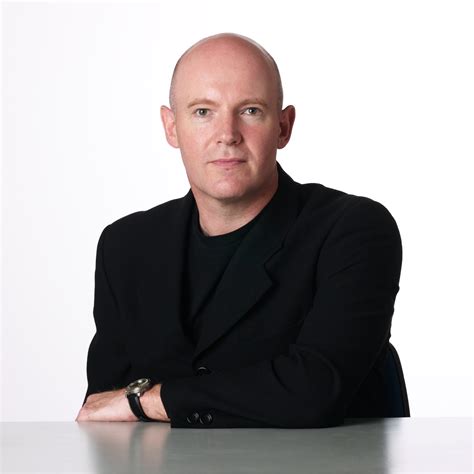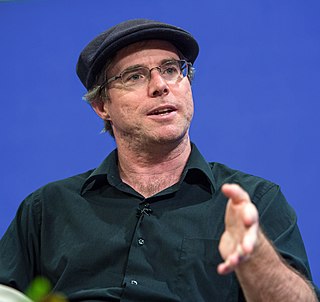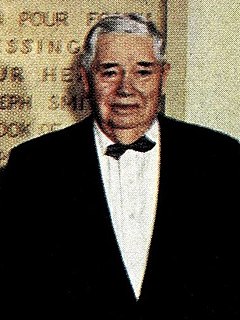A Quote by Robert A. Heinlein
Our behavior is different. How often have you seen a headline like this?--TWO DIE ATTEMPTING RESCUE OF DROWNING CHILD. If a man gets lost in the mountains, hundreds will search and often two or three searchers are killed. But the next time somebody gets lost just as many volunteers turn out. Poor arithmetic, but very human. It runs through all our folklore, all human religions, all our literature--a racial conviction that when one human needs rescue, others should not count the price.
Quote Topics
Arithmetic
Attempting
Behavior
Child
Conviction
Count
Die
Different
Drowning
Folklore
Gets
Headline
How
Human
Human Needs
Hundreds
Just
Like
Literature
Lost
Man
Man Needs
Many
Mountains
Needs
Next
Next Time
Often
Others
Our
Out
Poor
Price
Religions
Rescue
Runs
Search
Searchers
Seen
Should
Somebody
Three
Through
Time
Turn
Two
Very
Volunteers
Will
Related Quotes
?Reading good literature is an experience of pleasure...but it is also an experience of learning what and how we are, in our human integrity and our human imperfection, with our actions, our dreams, and our ghosts, alone and in relationships that link us to others, in our public image and in the secret recesses of our consciousness.
The Mayas, our grandparents, always said; every human being occupies a small piece of time. Time itself is much longer, and because of this they always said that we must care for this earth while we are on it because it will be part of our children and the children of our grandchildren. They know that life is short, that it can end so soon, and that if one gets lost on the way, others will come to take their place.
there are no knights on white horses, no magical grandmothers in the sky watching, waiting to rescue us. Teachers may come our way, but they will not rescue. They will teach. People who care will come, but they will not rescue. They will care. Help will come, but help is not rescuing. We are our own rescuers. Our relationships will improve dramatically when we stop rescuing others and stop expecting them to rescue us.
Chess is a unique battlefield for human minds and computers - human intuition, our creativity, fantasy, our logic, versus the brute force of calculation and a very small portion of accumulated knowledge infused by other human beings. So in chess we can compare these two incompatible things and probably make projections into our future. Is there danger that the human mind will be overshadowed by the power of computers, or we can still survive?
Some day no one will have to work more than two days a week... The human being can consume so much and no more. When we reach the point when the world produces all the goods that it needs in two days, as it inevitably will, we must curtail our production of goods and turn our attention to the great problem of what to do with our new leisure.
If a hiker gets lost in the mountains, people will coordinate a search. If a train crashes, people will line up to give blood. If an earthquake levels a city, people all over the world will send emergency supplies. This is so fundamentally human that it's found in every culture without exception. Yes, there are assholes who just don't care, but they're massively outnumbered by the people who do.
I will not call myself a pacifist for the very simple reason that if something like a [Francisco] Franco should arise in Spain again, or, for that matter, in America, and tried to take away whatever dwindling civil liberties and human rights we retain, I would resist them with a club if I had to. But my admiration for pacifism as an outlook and a sensibility is enormous. I just find that it gets me into contradictions, as it often gets many pacifists into contradictory positions and strategies.






































